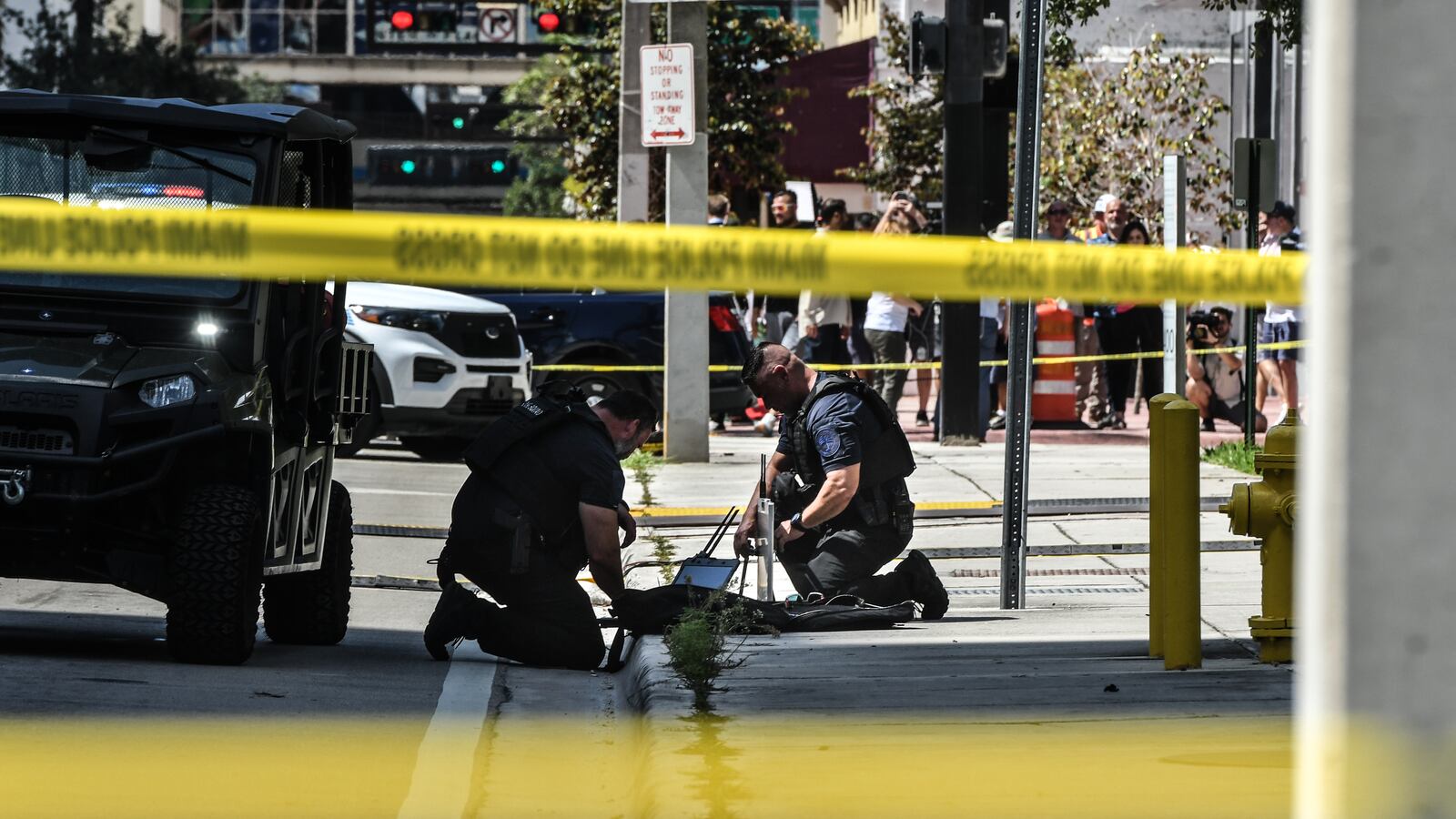FBI agents investigating a series of anonymous bomb threats sent to individuals, schools, and businesses across the country over the last six months believe the emails may originate in Africa, according to a police detective briefed on the case.
Detective Robert Onishi, of the Renton Police Department in Washington, is the lead investigator on an emailed threat that claimed bombs had been placed at the Brewmaster’s Taproom, a local Renton business, and the owner’s home, on Aug. 12. That threat led to the business being forced to cancel a planned Drag Queen Story Hour. Threats were also sent the same day to other businesses, including a boutique in Peekskill, New York.
Onishi was briefed by a local FBI agent on the ongoing investigation into the threats, he says. He was told the communications have been traced back to an IP address registered with AFRINIC, the regional internet registry for Africa. The feds have also identified the type of phone the emails are being sent from, an Android device that is mainly marketed in Africa and Southeast Asia, Onishi said.
“The phone’s time zone, which you’d expect is probably not spoofed, appears to be in Africa with a longitude consistent with Lagos, Nigeria,” Onishi said.
Onishi said that because the threat against the taproom in Renton originates overseas, there’s little he can do.
“The difficulty that I would run into is that we just don’t have the reach, we can’t get any judicial authority to compel a search of records from an overseas provider. So I am kind of stymied,” Onishi said.
The Daily Beast reviewed 35 of the email bomb threats that are currently under investigation. They were CC’d to Alejandra Caraballo, an instructor at Harvard Law School who is also a prominent advocate for LGBT rights. These threats, many of which target LGBT events, were sent to school districts, libraries, community groups and businesses across the United States. A series of threats sent to schools in Tulsa, Oklahoma, shut down the city’s school district for two weeks, leaving thousands of students out of school.
Caraballo has been cooperating with the FBI for months, but has felt frustrated that the feds have not been able to stop the culprit from disrupting lives.
“This explains partially why it’s been so slow-moving,” she says.
Both Det. Onishi and Caraballo speculated about the identity of the sender or senders of the threats, wondering if it could be someone hired to disrupt the lives of Americans in the run-up to the election.
“I can’t explain why a random person in Lagos would otherwise care this much,” Caraballo said.
It would not be the first time a foreign power has hired individuals in Nigeria to spread disinformation.
In 2019, a Russian troll farm was uncovered for the first time in West Africa, according to the Guardian. A Ghanaian non-profit hired a group of Ghanians and Nigerians to pretend to be Americans online, and stoke political division on Facebook and Twitter.
“The people behind this network engaged in a number of deceptive tactics, including the use of fake accounts… to manage pages posing as non-government organizations or personal blogs, and post in groups,” Nathaniel Gleicher, Facebook’s head of security policy at the time, told the Guardian.
Gleicher said Facebook’s investigation found that the group was linked to “individuals associated with past activity by the Russian Internet Research Agency (IRA).”
The FBI did not respond to a request for comment on its ongoing investigation into the bomb threats.







